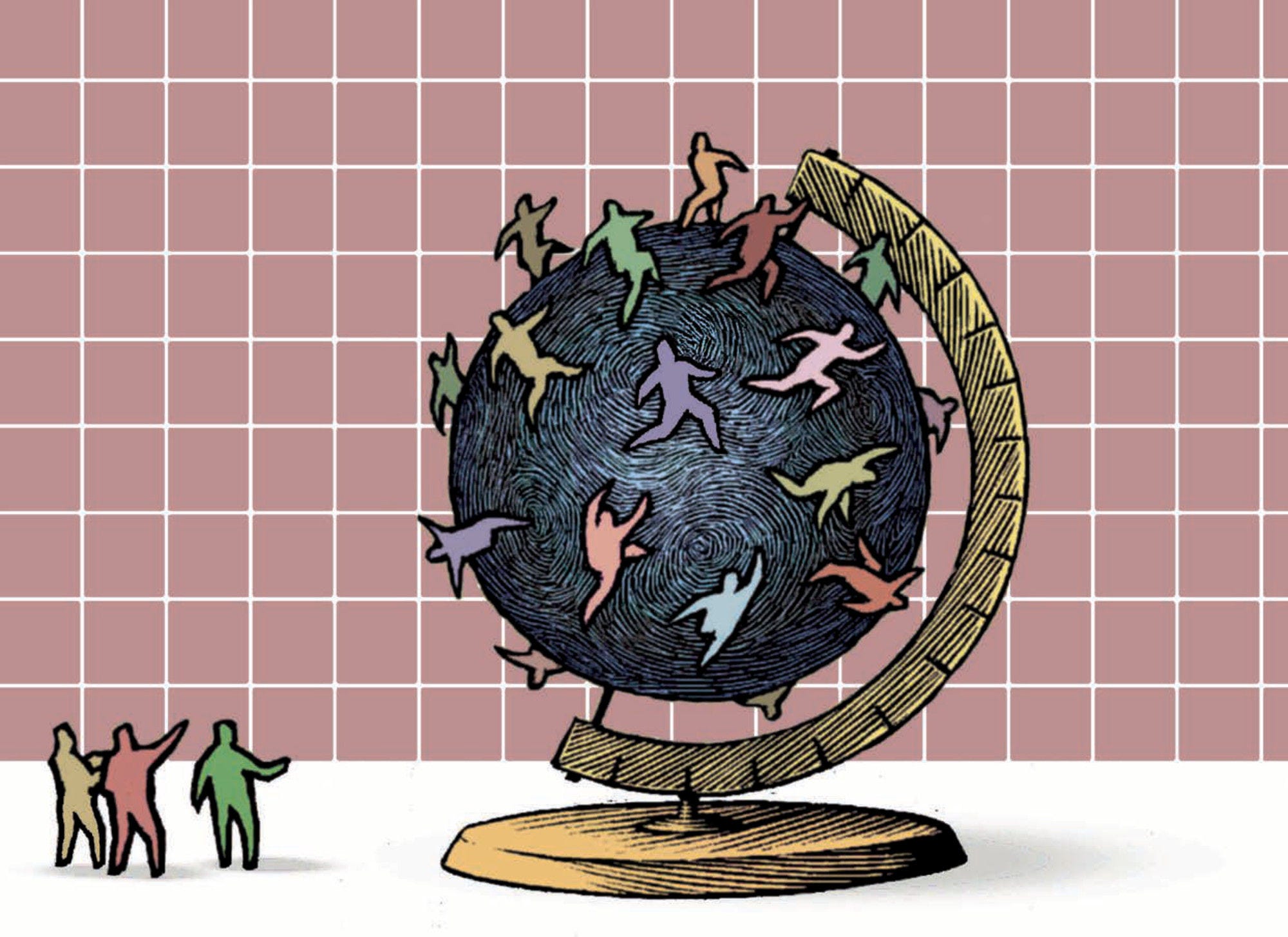In 2017, Ireland received 40 000 new immigrants on a long-term or permanent basis (including changes of status and free mobility), ‑4.1% compared to 2016. This figure comprises 69.1% immigrants benefitting from free mobility, 20% labour migrants, 8.8% family members (including accompanying family) and 2.1% humanitarian migrants.
Around 27 600 permits were issued to non-EU tertiary-level international students and 4 200 to temporary and seasonal labour migrants and trainees (excluding intra-EU migration). In addition, 6 200 intra-EU postings were recorded in 2017, an increase of 7% compared to 2016. These posted workers were generally on short-term contracts.
Apart from EU nationals, India, the United States and China were the top three nationalities of newcomers in 2017. Among the top non-EU 10 countries of origin, India registered the strongest increase (1 100) and China the largest decrease (‑200) in flows to Ireland compared to the previous year.
In 2018, the number of first asylum applicants increased by 25.6%, reaching around 3 700. The majority of applicants come from Albania (500), Georgia (500) and Syria (300). The largest increase since 2017 concerned nationals of Albania (200) and the largest decrease, nationals of Syria (‑200). Of the 1 200 decisions taken in 2018, 85.5% were positive.
Emigration of Irish to OECD countries decreased by 6.5%, to 28 000. Approximately 36.1% of this group migrated to the United Kingdom, 14.2% to Australia and 7.8% to Germany.
“The Migrant Integration Strategy – A Blueprint for the Future” was published in February 2017, setting out the Irish government’s approach to migrant integration for the period 2017‑20. The Strategy envisages a whole-of-government approach involving actions by all departments under the lead of the Office for the Promotion of Migrant Integration in the Department of Justice and Equality. The Strategy is targeted at all migrants, including refugees who are legally residing in the State as well as those who have become naturalised Irish citizens but who were born outside Ireland.
The government published a comprehensive “Review of Economic Migration Policy” in September 2018. One key recommendation was to adapt the current twice-yearly review of the Highly Skilled and Ineligible Employment Lists, which govern labour migration streams for non-EEA workers, to make them more responsive. The review further recommends the introduction of a Seasonal Employment Permit to facilitate certain categories of short-term workers, as well as a review of salary thresholds and other criteria for employment permits. The review noted that the labour market test requires vacancies to be listed in newspapers, an expensive and cumbersome obligation contained in primary legislation. It also encouraged the government to use more flexibility in waiving the 50% rule, which denies work permits for employment in firms where less than half of employees are EEA nationals.
In May 2018, the government introduced a temporary pilot scheme for workers in the agri-food sector. The pilot assigned 500 permits to the horticulture sector, 250 to the meat industry and 50 to the dairy sector. The minimum salary threshold of EUR 22 000 is below the standard Irish work permit minimum. Employers must ensure access to suitable accommodation and to training in areas such as language skills. In August 2018, a further 500 permits were provided for meat processing operatives, further to the initial 250, on account of persisting labour shortages.
In October 2018, the government announced a limited temporary regularisation programme for those immigrants from outside the European Economic Area who held a valid student permit from January 2005 to December 2010, but had subsequently become undocumented. The new policy allowed such individuals to apply for permission to remain in Ireland during a 3-month window from October 2018 to January 2019. Successful applicants were granted a "4S" stamp, permitting them to live and work in Ireland for two years without an employment permit.
Since March 2019, eligible spouses of Critical Skills Employment Permit (CSEP) holders and Researchers on a Hosting Agreement can start working in Ireland immediately upon obtaining an Irish Residence Permit, rather than having to obtain a separate employment permit. Self-employment is not allowed. Spouses of other permit holders, including the Intracompany Transfer Permit and General Employment Permit, are still required to obtain a separate employment permit.
Processing delays in the Department of Business, Enterprise and Innovation led the DBEI to grant “Stamp 4” status (which allows unrestricted residence and employment rights) to CSEP holders after 20 months, even if this is normally only possible after 24 months of CSEP, as long as an application has been filed. The Stamp 4 status, once received, is valid for two years, renewable.
For further information:
www.inis.gov.ie
www.ria.gov.ie/
https://dbei.gov.ie
